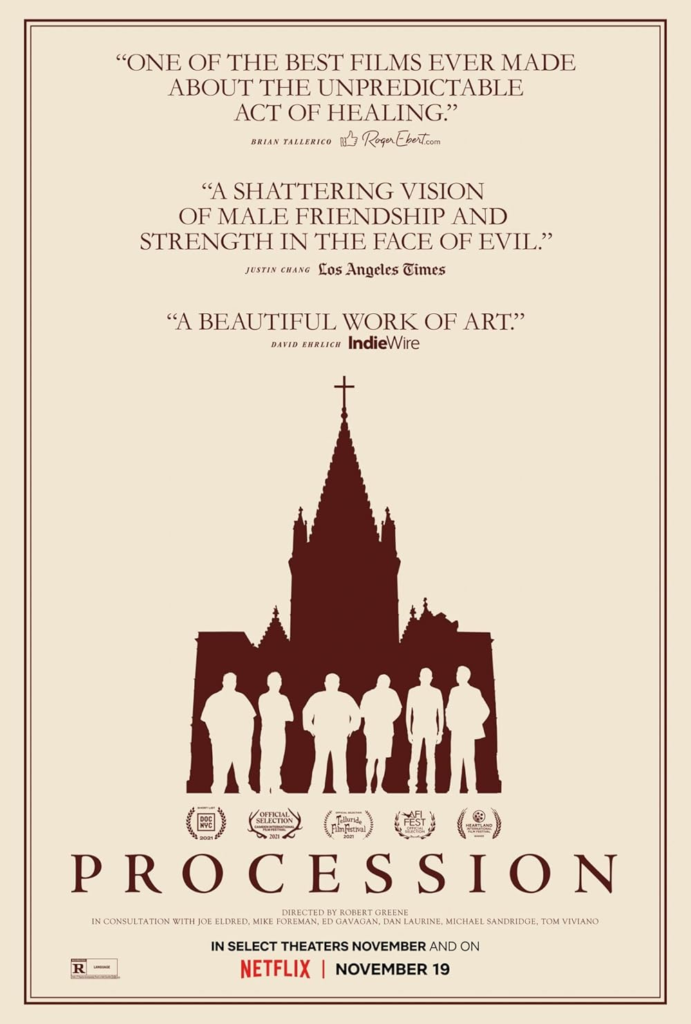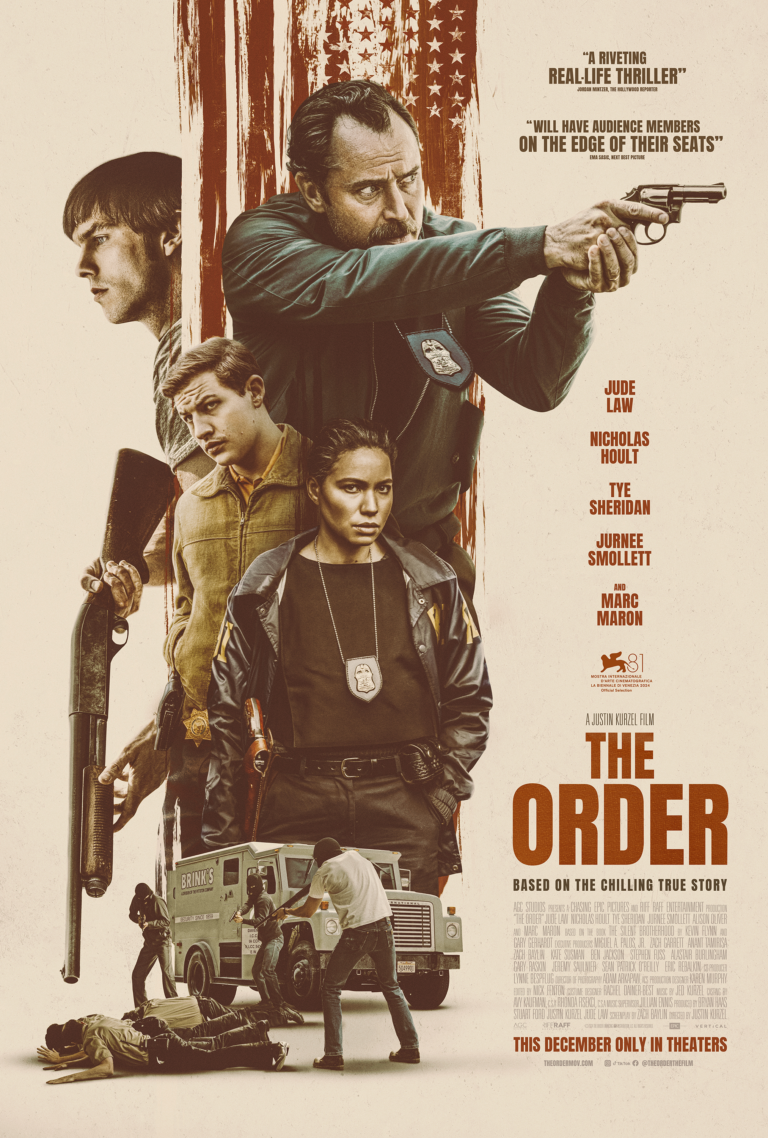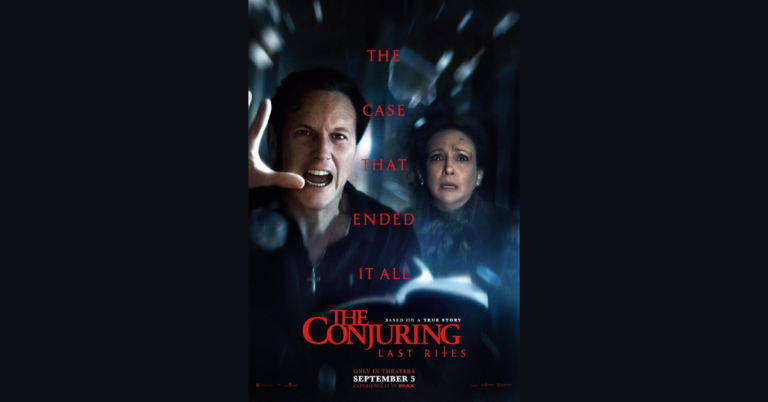Procession Christian Review

Procession isn’t your typical documentary. It’s not the kind that tugs at your heartstrings with soft music or tries to force an emotional reaction. Instead, it moves through a quiet intensity, telling the stories of six men who were abused by Catholic priests during their childhood. But this isn’t a straightforward recount of trauma. What director Robert Greene offers is something more immersive, more profound, and perhaps more challenging: a raw, honest portrayal of how art can become a tool for healing. For a Christian audience, it is especially resonant—touching on themes of confession, community, redemption, and finding grace in the most unlikely of places.
Cinema as Confession: An Unorthodox Healing Journey
The unique power of Procession lies in the way it allows these survivors to take control of their own stories. Rather than sitting down for traditional interviews, these men are given the chance to reimagine and recreate moments from their past through short films. These scenes are not mere retellings but deeply personal interpretations, where the survivors take the reins of their narrative in ways they likely never imagined they could.
For those familiar with Christian teachings, this act of sharing and opening up carries significant weight. Confession, after all, is central to the Christian faith. It’s about revealing the darkest parts of ourselves, our sins, and our sufferings, and bringing them before God and others in search of healing. The survivors in Procession do something similar. Through cinema, they “confess” their stories, but in a way that empowers them, allowing them to gain mastery over memories that have long held them captive. It’s not the typical act of confession we might imagine in a church, but it’s deeply spiritual nonetheless—a form of soul-bearing where they grapple with the weight of their trauma.
Of course, this process isn’t clean or comfortable. Greene doesn’t present a tidy, emotionally charged journey toward healing. Instead, he allows space for the men’s awkwardness, discomfort, and struggle. As Christians, we know healing isn’t always instantaneous or easy. It’s messy, it takes time, and sometimes, it involves facing things we’d rather keep buried. Greene’s refusal to force cathartic moments or easy resolutions feels authentic—true to the reality of long-term trauma recovery, where the path to peace is often winding and uncertain.
The Role of Community: Bearing Each Other’s Burdens
One of the most striking aspects of Procession is the communal bond that forms between the six survivors. While their stories are deeply personal, they aren’t going through this process alone. They stand by each other, offering support, comfort, and understanding as they each confront their pain in different ways. It’s a beautiful example of what the Bible teaches us about community—particularly the call in Galatians 6:2 to “bear one another’s burdens.”
For Christians, this portrayal of community is both powerful and instructive. The survivors find strength in each other’s company, not because they have all the answers or know exactly how to heal, but because they are willing to walk this difficult road together. Watching the film, I was reminded of how we, too, are called to be a community of believers who don’t shy away from the pain of others but engage with it, stand by each other, and offer the love and support needed for healing.
This sense of solidarity among the men is one of Procession’s most powerful elements. In a world that often feels isolating—particularly when dealing with deeply personal trauma—this film shows us the importance of relationships, of being seen, and of sharing our stories in the presence of others who can help carry the burden.
Memory and Redemption: Confronting the Past
Memory is a tricky thing. For those who have experienced trauma, it can be a source of deep pain, but it’s also something that must be faced if true healing is to occur. The survivors in Procession don’t just recall their memories; they recreate them, bringing their past to life in ways that allow them to process, confront, and—hopefully—move forward.
For Christians, this confrontation of memory has strong echoes in the faith. The act of remembering is central to our lives, whether it’s through the ritual of communion, where we remember Christ’s suffering and sacrifice, or through personal reflection on our own lives. We believe that by facing our past and acknowledging our pain, we can find redemption.
In Procession, the survivors are not just reliving their trauma for the sake of reopening old wounds. Instead, they’re engaging with their memories in a way that allows them to find meaning and, in some cases, closure. This echoes the Christian understanding that redemption often comes through grappling with our pain and finding God’s grace in the midst of our struggles. By facing their past head-on, these men are not only seeking healing for themselves but also for others who may be struggling with similar experiences.
Art as a Sacred Space: Creativity as a Tool for Rebuilding
There’s something deeply spiritual about the way Procession uses art as a means of healing. These short films that the survivors create are not just pieces of therapy—they are acts of creation, of making something new out of the wreckage of their past. In this way, the film reflects the Christian idea of creativity as a reflection of God’s own nature as Creator.
Through the act of filmmaking, the men find a way to express emotions and experiences that words alone might not be able to convey. Art becomes a sacred space, a place where they can engage with their trauma, find solace, and communicate their stories to the world. As Christians, we recognize the power of creativity as a gift from God—a way to connect with the divine and with each other. In Procession, art becomes a vehicle for healing, for rebuilding lives that have been shattered by pain.
A Call to Action: Bearing Witness and Joining the Healing
In the end, Procession does more than tell a story—it calls its audience to action. By asking us to watch, to listen, and to engage with the survivors’ stories, the film challenges us not to look away from the suffering of others. It invites us to join in the healing process, to be part of the community that helps carry the burden of those who are hurting.
For Christians, this is a call we should take seriously. We are called to be the hands and feet of Christ in the world, to bear witness to the pain and suffering around us, and to offer comfort, support, and love to those in need. Procession reminds us that healing is not something we do alone—it’s something that happens in community, through relationships, and through the grace of God.
Conclusion: A Poignant Reflection on Pain and Redemption
Procession is not an easy film to watch, but it is a deeply important one. For Christian viewers, it offers a rich tapestry of themes that resonate with the faith—confession, community, redemption, and the healing power of creativity. The film doesn’t offer easy answers or neat resolutions, but it does offer hope. In the midst of pain, there is the possibility of grace, healing, and new life.
Rating: 8.5/10





